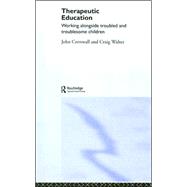
Note: Supplemental materials are not guaranteed with Rental or Used book purchases.
Purchase Benefits
What is included with this book?
| List of figures | viii | ||||
| List of tables | ix | ||||
| Acknowledgements | x | ||||
|
1 | (18) | |||
|
2 | (5) | |||
|
7 | (1) | |||
|
8 | (3) | |||
|
11 | (8) | |||
|
19 | (19) | |||
|
20 | (2) | |||
|
22 | (6) | |||
|
28 | (4) | |||
|
32 | (6) | |||
|
38 | (16) | |||
|
39 | (2) | |||
|
41 | (1) | |||
|
42 | (6) | |||
|
48 | (3) | |||
|
51 | (3) | |||
|
54 | (17) | |||
|
55 | (6) | |||
|
61 | (4) | |||
|
65 | (3) | |||
|
68 | (3) | |||
|
71 | (19) | |||
|
72 | (2) | |||
|
74 | (3) | |||
|
77 | (6) | |||
|
83 | (7) | |||
|
90 | (17) | |||
|
90 | (4) | |||
|
94 | (11) | |||
|
105 | (2) | |||
|
107 | (16) | |||
|
108 | (2) | |||
|
110 | (7) | |||
|
117 | (4) | |||
|
121 | (2) | |||
|
123 | (18) | |||
|
124 | (1) | |||
|
124 | (6) | |||
|
130 | (2) | |||
|
132 | (2) | |||
|
134 | (3) | |||
|
137 | (4) | |||
|
141 | (16) | |||
|
141 | (3) | |||
|
144 | (2) | |||
|
146 | (2) | |||
|
148 | (2) | |||
|
150 | (7) | |||
| 10 Putting it all together, together | 157 | (15) | |||
|
158 | (2) | |||
|
160 | (6) | |||
|
166 | (2) | |||
|
168 | (4) | |||
| Appendix 1: Evaluating areas of therapeutic working | 172 | (3) | |||
| Appendix 2: Therapeutic education assessment for shared values | 175 | (4) | |||
| Appendix 3: Proactive and pro-social management of behaviour | 179 | (3) | |||
| Appendix 4: The points system | 182 | (4) | |||
| Appendix 5: Handling difficult and violent situations | 186 | (3) | |||
| Appendix 6: Case-study data and preliminary analysis | 189 | (18) | |||
| Appendix 7: A schedule for observing and assessing a therapeutic approach | 207 | (3) | |||
| Appendix 8: Behaviour and PSHE profile | 210 | (12) | |||
| Notes | 222 | (2) | |||
| References | 224 | (8) | |||
| Index | 232 |
The New copy of this book will include any supplemental materials advertised. Please check the title of the book to determine if it should include any access cards, study guides, lab manuals, CDs, etc.
The Used, Rental and eBook copies of this book are not guaranteed to include any supplemental materials. Typically, only the book itself is included. This is true even if the title states it includes any access cards, study guides, lab manuals, CDs, etc.